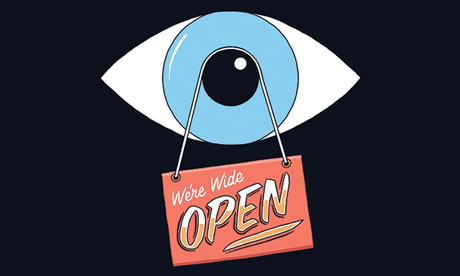
We face momentous and hazardous decisions every day of our lives. How can you be sure that the doctor you are seeing isn't an impostor dressed up in a white coat? It's surprising how little we think about the way we think. In the age of data deluge, we are overwhelmed with information. Every week, another 150 self-help books are published. How do you know this one is any different from the others? It isn't.
How many emails do you get each day? Someone important like me gets several thousand. But let's say we're talking about a non-entity who only gets about 50. A Microsoft study has shown it takes computer users an average of 22 minutes to return to a suspended task if they are interrupted to answer an email. This proves conclusively that most people do absolutely nothing of any value at work.
So who and what should you trust? Does the oncologist you've just seen seem self-assured? You had better hope not – because a study in the Journal of Misleading Statistics shows conclusively that doctors who are most certain of their diagnoses are all too often wrong. So if you're feeling relieved at having been given the all-clear, then you've almost certainly got less than a year to live.
When you look at a picture of a tiger, what do you see? Do you just see a tiger? If so, you are a complete moron. Someone with their Eyes Wide Open would know there could be a snake hiding behind the tiger. But then again, there might not be. You must always expect the unexpected. Though sometimes the expected does happen. So you must be alert to that possibility as well.
Life is fraught with complications. How can you tell if you will still have a job tomorrow? Research from the Institute for Policy Guesswork demonstrates that people with absolutely no grasp of economics are more likely to be accurate in their forecasts for global recovery than any wonk who is paid to know better. Myself excluded, naturally.
How do you cope with a book that has so questions? The answer is that you have to start trusting your instinct. So if that voice inside your head is telling you that you've read all this counterfactual stuff many times before, then stop reading right now. But you must have a proper understanding of the nature of risk. For this, you will have to lose your fear of maths. The best way of doing this is to become very good at maths.
Did you know you have a much better chance of surviving open heart surgery if the consultant has had a good breakfast? If you have just had a major myocardial infarction, you may not be in a fit state to enquire if the surgeon who is going to try to save your life is hungry. How then do you make sure she is well-fed? You keep two chocolate croissants taped to your chest at all times with a note saying: "In the event of CPR, please feed to the quack."
The key to making good decisions is to measure your emotional thermostat. The Centre for Computational Error recently conducted a study of Buddhist monks that showed monks were more likely to accept a gift from a friend who had won the lottery than other people are. This is because ordinary people are likely to be so angry they have not been offered a larger sum that they turn down the gift in a fit of pique, while the monks are able to detach themselves from such negative emotions. Alternatively, it could mean that Buddhist monks are a great deal greedier than anyone imagined.
Here then is the way forward. Trust everyone and trust no one. Trust yourself, but not too much. Listen to dissenters, but don't always take any notice of them. Look at the numbers and then have a guess. And whatever you do, don't come running to me when your croissants fall out.
Digested read, digested: Eyes fast closing

